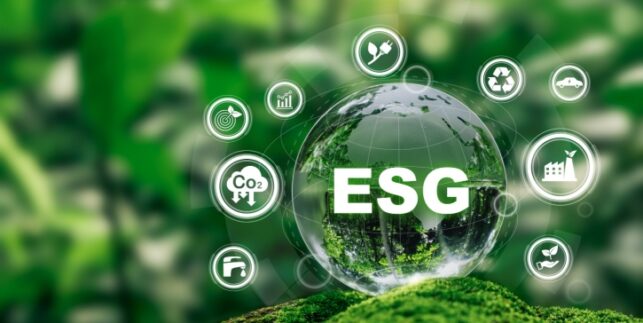How the New UK Plastic Packaging Tax Will Affect Manufacturers – And What They Can Do About It

As part of their ongoing commitment to improving plastic recycling rates, the UK has enacted the new Plastic Packaging Tax as of April 1st, 2022. This tax will see manufacturers and importers of plastic packaging components taxed at the rate of £200 per metric ton unless those components are made with at least 30% recycled plastic.
The tax is set to affect countless businesses across the UK, with the threshold to register for the tax being just ten metrics tons of plastic packaging produced or imported in a 12-month period. Manufacturers could see themselves facing serious challenges under this new scheme.
What Does the Plastics Packaging Tax Apply To?
The tax will apply to any packaging components in which plastic is the most common material by weight. This covers all types of plastics, including those that are biodegradable. The primary exemption from the tax is for components made with at least 30% recycled materials, although there are other exemptions for specific product categories.
The new plastic packaging tax applies to a wide range of different packaging types. This includes, but isn’t limited to, examples like:
- Bottles
- Films
- Bags
- Wraps
- Liners
- Seals
And more
The primary factor in determining which types of plastic packaging are subject to the tax is whether or not they are single-use. Re-usable water bottles, plastic storage bins, and other examples are not subject to the tax. There are a variety of specific exemptions, with the UK government providing a series of guidelines for manufacturers.
The tax doesn’t apply to any plastic packaging components meant for export from the UK within 12 months of their production or import, although manufacturers will still have to register for the tax and keep proper records.
What Are the Manufacturer’s Responsibilities Under the New Tax?
Any manufacturer that produces ten or more metric tons of plastic packaging components in any 12-month period must register and keep detailed records for tax accounting, regardless of whether or not their packaging meets the 30% recycled material threshold.
These detailed accounts must include:
- The breakdown of plastic packaging components finished during each quarter by weight
- The weight of exported packaging on which the tax can be deferred
- The weight of any packaging on which a credit has been claimed that has now been exported or converted into new components
These accounts must be maintained for at least six years following their accounting period. Records must be kept to back up any exemptions claimed. This includes records for both the recycled plastic content of any packaging over 30% recycled plastic and other specific exemptions.
Manufacturers must demonstrate how they calculate the percentage of recycled plastic used, along with records showing that recycled plastic was, in fact, used. They will need to be able to provide the dates when components were finished, the percentage of recycled plastic for specific production runs, and the source of recycled plastic.
Requirements also extend to organizations that do business with these manufacturers; If plastic packaging tax within the supply chain hasn’t been paid, purchasers can be held liable. In order to mitigate this liability, companies must request information regarding the tax status and percentage of recycled plastic used by the manufacturers they purchase from.
How Manufacturers Can Monitor Packaging Components
With these increased requirements, manufacturers need a solution that can provide the required details in an accurate and secure cloud-based way. The detailed information that manufacturers must accurately collect for any production run span the entirety of their operations, so a comprehensive solution is needed to aggregate and manage this data.
The primary documentation required for this is production specification; For every production run, manufacturers must be able to provide accurate records of the weight of plastic packaging produced and the percentage of recycled plastic feedstock used. Without these records, the manufacturer will be unable to justify any tax exemptions for recycled plastics if they are audited.
Quality assurance is another key component. Manufacturers may be required to demonstrate that their final packaging contains the stated percentage of recycled plastic, along with verifying the accuracy of production run specifications. Ensuring proper quality assurance will require both a robust solution for monitoring quality and the use of internal or third-party audits.
Demonstrating the source of recycled plastic feedstocks is another essential element manufacturers must monitor. Manufacturers can use contracts and invoices from their suppliers to show that their operations are using an appropriate amount of recycled feedstocks for the final product’s stated percentage.
All of these elements rely on clear and accurate production data and manufacturers must put an appropriate solution in place to ensure that all of this vital production information is being collected and maintained accurately and continually.
Ensuring Compliance With Recycling Policies
Another potential challenge for manufacturers comes from within their own organization;. Having a recycling policy in place that dictates the proper use of recycled feedstocks to reach the 30% threshold in product recipes isn’t enough to ensure compliance. The tax exemption is based on actual production numbers, so manufacturers need to know that their policies are followed consistently on the factory floor.
To do so, manufacturers need real-time information from the factory floor.
By continuously comparing actual production with the planned recipe, compliance with the recycling policy can be carefully maintained. Instead of finding out at the end of a production run that tons of packaging components are now subject to the £200 tax, production teams will be able to take corrective action immediately.
This real-time monitoring can also benefit quality assurance on the factory floor. In many applications, an increase in recycled feedstocks leads to an increase in defects. This means that any manufacturer increasing their use of recycled feedstocks to avoid the new tax will have more quality challenges. Active monitoring can bring quality issues to the awareness of production teams before they can lead to significant losses.

Changing the way people work in factories
Request a DemoTaking Control of Your Recycling Policy With Matics
Manufacturers can ensure proper accounting for new tax requirements and take steps to implement their recycling policy with Matics. Our Real-time Operational Intelligence (RtOI) solution works with your existing systems to provide the highest level of visibility for all of your operations.
By aggregating data from all machines on your factory floor and continuously comparing actual production with KPI targets, production schedules, and recipes, Matics identifies any discrepancies and immediately alerts the production team to the issue. The accurate and precise production data that Matics collects can help you ensure that you have the detailed records needed under the new requirements.
Plastic manufacturers are in the process of a challenging transition, with the latest Plastic Packaging Tax and planned measures like the Extended Producer Responsibility legislation putting them under significant pressure to innovate and find new solutions. Digitalizing your shop floor with Matics can serve as a vital first step towards the future of manufacturing.




